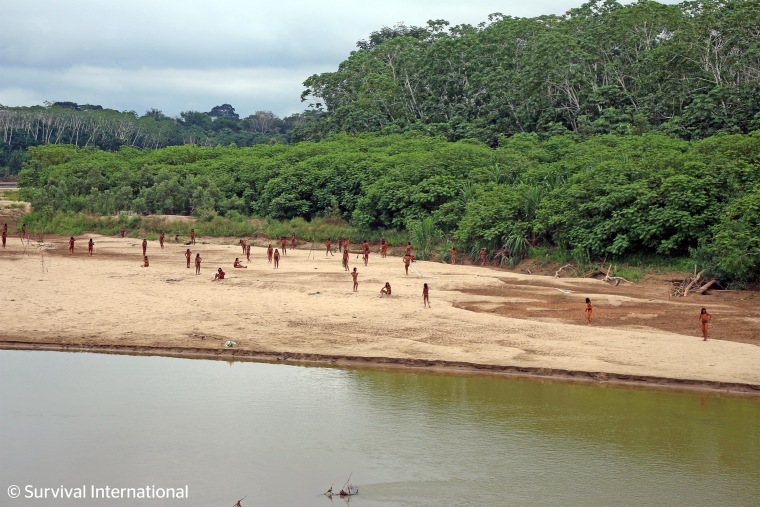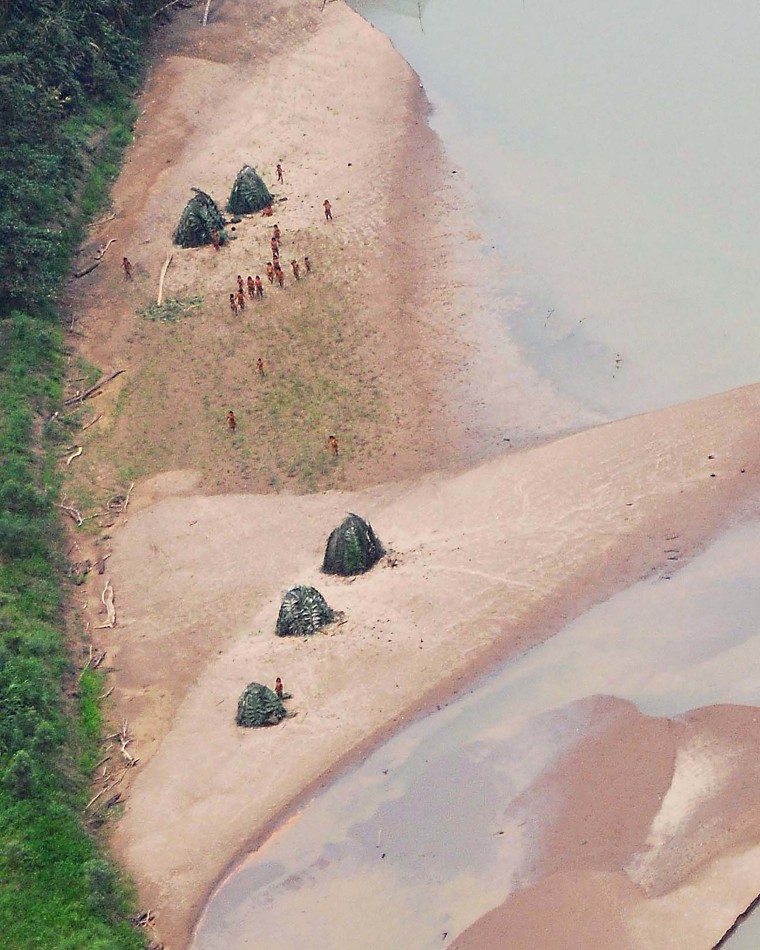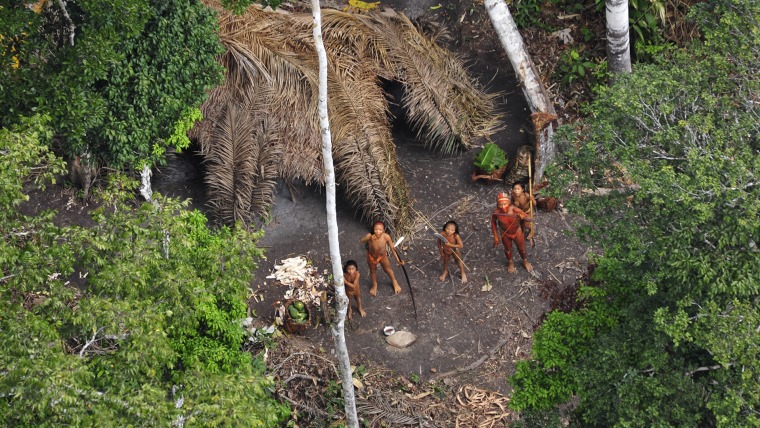Uncontacted Indigenous tribes are “at the edge of survival” as growing contact by missionaries, miners, criminal gangs and social media influencers spreads diseases and wipes out forests, according to a landmark new report.
At least 196 such groups remain, half of whom could be wiped out in under a decade, according to the report released Sunday by Survival International, a London-based Indigenous rights organization, which attempted one of the most comprehensive tallies yet of some of the world’s most isolated people.
The communities, most of which are in the Amazon Basin — with Brazil accounting for 124 of the 196 — are self-sufficient and resilient, living independently and consciously avoiding contact, Survival said in its report.
Some of the groups also live in the Asia-Pacific, including two in India and four in Indonesia, where they hunt, gather, fish and build everything they need for their sustenance, from homes to medicines.
“They are the experts on their forests — drawing everything they need entirely from their environment,” Survival said in its research.
But increasing encroachment by missionaries, social media influencers, drug traffickers and miners has resulted in outside diseases’ wiping out entire communities and threatening the forests and natural resources they depend on.

“If we don’t support the fight for their rainforest, my uncontacted relatives will die,” an unnamed man of the Hongana Manyawa tribe in Indonesia was quoted as saying in the report.
“The rainforest is everything, it’s their heart and life. My parents and siblings are in the rainforest and without support they will die,” he added.
The tribe lives on Indonesia’s Halmahera Island, where nickel for electric vehicle batteries is being mined.
Survival says it relies on its international network of researchers and accounts from the contacted Indigenous people.
Resource extraction is by far the biggest threat to the uncontacted population, the report said. Survival says around 96% of the groups face threats from extractive industries like mining.
Thirty-eight of the uncontacted groups "face annihilation" by infrastructure projects like roads and railways, it said.
Survival says that criminal gangs threaten about a third of the groups and that missionaries who are "bankrolled by multi-million dollar evangelical organizations" to track and convert people to Christianity threaten about 1 in 6.
Another rising threat is social media influencers seeking to make the “first contact” for content and advertising, the charity said.
“Indigenous people have become this spectacle. They’re here to be consumed by global audiences,” Michael Rivera, an anthropologist at the University of Hong Kong, told NBC News.
“This is reproducing a sort of racial hierarchy that is positioning influencers, which tend not to be Indigenous people, [at the top.]”
Any activity on Indigenous land requires free, prior and informed consent, as mandated by international law; however, that is not possible when the groups are not contacted. And national enforcement varies.
In one example in April, Indian police arrested an American YouTuber who visited an off-limits island in the Indian Ocean and left an offering of a Diet Coke can in an attempt to make contact with the reclusive Sentinelese tribe, which is known to shoot at outsiders with bows and arrows.
An American missionary was killed in 2018 after having tried to make contact with the tribe.

"The solution is obvious: industries and governments must act now to halt this continuing colonization so that uncontacted peoples can live freely as they choose," Caroline Pearce, director of Survival International, said in the report.
Uncontacted people usually get little attention from the governments around them, which critics say is because they don’t vote and the land they hold is often resource-rich and ripe for exploitation.
Survival says the uncontacted people reject contact as a “deliberate choice,” which is “often rooted in memories of devastating past contact and invasion, which brought violence, epidemics, and death.”
The report called for a global no-contact policy and urged private companies to ensure their supply chains are free of material sourced from land inhabited by the Indigenous groups.
“People think electric cars are a green alternative,” said Fiona Watson, Survival’s research and advocacy director, “but mining companies are operating on the land of uncontacted peoples and posing enormous threats.”

